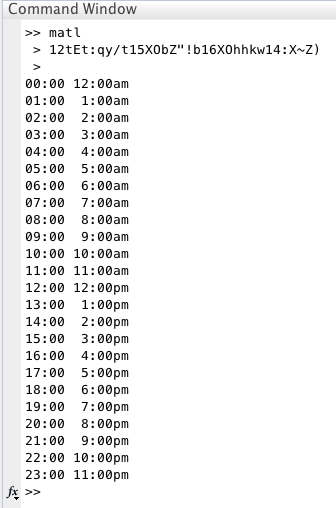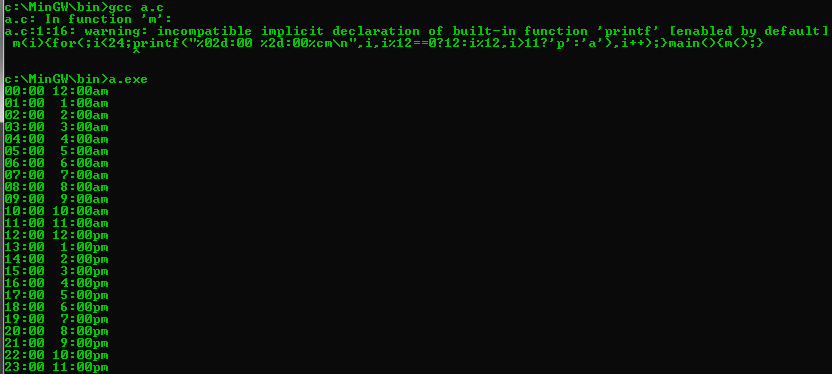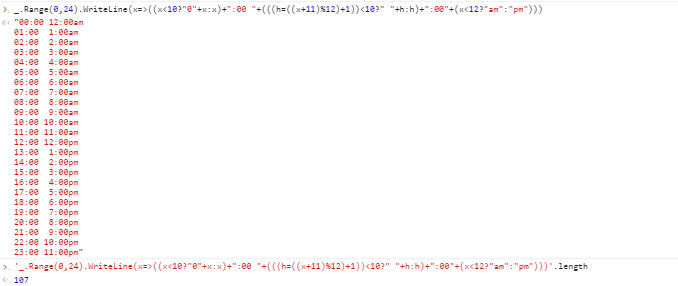Write a program or function with no input that prints or returns this string of 24-hour and 12-hour times:
00:00 12:00am
01:00 1:00am
02:00 2:00am
03:00 3:00am
04:00 4:00am
05:00 5:00am
06:00 6:00am
07:00 7:00am
08:00 8:00am
09:00 9:00am
10:00 10:00am
11:00 11:00am
12:00 12:00pm
13:00 1:00pm
14:00 2:00pm
15:00 3:00pm
16:00 4:00pm
17:00 5:00pm
18:00 6:00pm
19:00 7:00pm
20:00 8:00pm
21:00 9:00pm
22:00 10:00pm
23:00 11:00pm
The string must be output exactly as it appears here. The only exception is that it may optionally have a single trailing newline.
So the MD5 hash of your output should be
827ae6e2dbb1df494930baedb3ee2653
if you do not have a trailing newline and
cd4c3d18abee9bafb495f390a919a13f
if you do. (Your hash could be different if your system uses another type of newline but that's OK.)
The shortest code in bytes wins. Tiebreaker is earlier answer.



